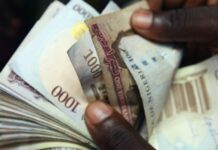By LaBode E. Obanor
The Nigerian government is about to realize that enacting budgets and borrowing on future oil revenue as security was a misguided and wrongheaded policy.
With the pain of covid-19 easing no time soon, most developing countries in Africa will continue to see their economy slide into a recession. In most extreme cases these nations will experience a depression.
Nigeria, Africa’s largest economy and biggest producer of crude oil will be the hardest hit. The country’s inevitable condition will be induced by its failure to restructure and/or diversify from a Petrol-State to an Agro-industrial economy, the country’s main source of wealth before the oil boom of the 1970s.
The country’s foremost crudes, Bonny Light, Brass River, and Qua iboe, are all currently trading between $16 and $18 a barrel from their max trading of $72 at the beginning of 2020. These figures represent the current prices at the time of the writing of this opinion. Thenceforth, it has been a free fall in the global oil price, withal, the coronavirus pandemic did not help matters either.
Nigeria had since cut oil production as of the beginning of April when the head of oil regulator, Sarki Auwalu, ordered oil and Gas Company to reduce their workforce, limit the number of personnel at project/construction sites in an attempt to curb the spread of covid-19 pandemic.
Back in December 2019, shortly before the covid-19 pandemic, the National Assembly passed a N10.59 trillion ($35bn) budget for 2020 fiscal year; this budget assumes crude production of 2.18 million barrels a day at a $57 per barrel. With Bonny light, Nigeria’s cardinal crude, currently trading at $16 a barrel, it is unlikely that Nigeria can sustain or finance its fiscal budget in its current form. Interpretation, the petrodollar, is about to burst and Nigeria will soon come up against an unpleasant discovery, that, tying future revenue majorly on oil sale was a colossal miscalculation and a fatal economic policy error.
The unintended consequence of this policy blunder will be a protracted recession spanning a decade long or a total economic collapse reminiscence to the period after the civil war. With major parts of the budget revenue coming from the sale of oil and international borrowing, a reasonable person can discern why this can quickly descend into an economic tailspin.
Accompanied by the rising exchange rate of the U.S. dollar and dwindling revenue from cheap oil price, the country will be unable to finance its budget, leaving behind revenue allocation, domestic and social services including salaries of civil servants unpaid.
The inevitable occurrence of the later will leave the country with the only logical option, which is to implement harsh austerity measures far eclipsing that of the early 1980s. Most State governments whose revenue depends on federal allocation will promptly run out of money and will be forced to lay off workers, cut services and raise taxes; doing this will undoubtedly make life harder, unbearable for the already suffering citizens who have been forced to remain home for weeks with no pay due to the lockdown.
The Naira value will assuredly plummet to an alarming N1200 to $1. The best-case scenario will be a hyperinflation in the magnitude we have never seen before. Seeing that Nigeria is over-dependent on foreign products, most household goods and some consumables, essential commodities including medicines and medical supplies will be beyond reach as prices will go through the roof.
The stark and unembellished trend has already begun. Recently, a friend lamented that a blood pressure medication costing N10000 ($27) at the pharmacy was recently almost doubled to N18000 ($50). The inability to buy basic medicine necessary for the support health and life will become an actuality.
Everything, from food to clothing and medicine are all going to see rapid upturn in prices, an increase of 500 to 1000%. The worst-case scenario will be a severe economy downturn, the kind that can lead to widespread hunger and disease if this trend is not immediately ameliorated.
Nigeria may be able to survive a probable national fiasco and plug the hole of economic depression if government move quickly and halt capital projects. Drastically reduce recurrent expenditures, which has been the country’s bane for decades, including the overblown executive/legislative salaries and non-essential allowances. Downsize State allocations and mandate that States look inward for alternative sources of revenue to include agribusinesses.
Now is the time for the States to self-assess, self-innovate and self-sustain. The national government inclusive.
Only with these measures can the country weather the economy storm that will assuredly befalls it and shake off this anathema that is the petrodollar ones and for all. A $57 overly optimistic oil price is not in our foreseeable future. The time to act is now.












Very sobering exposition of the Nigerian state of affair.
An extremely brilliant write up. Whether or not the Nigerian Government will take on board the advice therein, remains to be seen. We do need an overhaul of the entire system and a rejig of the financial sector. It’s time to look inwards for sustainability via aggro and manufacturing, amongst other things, as rightly suggested by the writer. We remain hopeful that this situation would serve as a wake up call, to which the right minds and professionals, would be employed and deployed, to do the needful in resuscitating our comatose economy.
Thanks Anthonia. We sincerely hope that they do.
This is a well thought out expose. I wonder how the prospective decline in the Nigerian economy could affect potential Nigerian investors living in US or Europe. Would it make sense to invest in the country at such a moment? ?
Glory, as it looks now, the economy outlook and fundamentals are not strong to support investment.
The time to act is now indeed. The 36 Nigerian states surely do need to come up with ways to increase their internally generated revenues (IGR), and to depend less on Federal government allocations. The time is definitely now to cut down legislative/executive monetary gain. Unfortunately or fortunately, this will make politics in Nigeria a less attractive enterprise.
Yes.
The primary purpose for running for elected office is to serve and not to self-enrich.
Well said. I couldn’t agree more and I quote…
“Now is the time for the States to self-assess, self-innovate and self-sustain. The time to act is now.”
But will they, that is the question?
Thanks Kendra!
We only hope they’ll see the handwriting on the wall.
1200 naira to $1 ???! That’s untold hardship I must say.
Totally correct, It’s better they act fast only if they will
Cut the cost of governance, reduce recurring expenditure and less dependence on oil.
If this is not done urgently, we may not recover from the recession we are heading to. Very educative write up.
It’s unfortunate, that while the ruling classes had over the years paid lip service to economic restructuring, the oppositions have been clamoring for a political restructuring. Especially, the pseudo-economists who seems to have all the solutions, but when given the chance think it’s their turn to grab from the National cake, hence the endless squandering. It’s not as if they don’t know the solutions to this problem, but corruption has eaten too deep into the fabric of the nation. GOD HAVE MERCY ON OUR COUNTRY NIGERIA.
I agree with you.
It is a political and economic race to the bottom.
??
kudos to ur brilliant evaluation of d dire situation in our beloved country
However i believe ur prescription of inward look 4 lasting solution falls short of d true solution.
U rightly pointed to financial policy blunder by d FGovt
Hence d states must be allowed d framework 4 self determination aka restructuring to true federalism in practice
This is what progressive societies do
In d immediate period d Fed govt MUST initiate expense reduction starting from d bloated salaries n emoluments of d legislative n executive branches of govt
Again u make us proud
orobosa
Thank you for your comment.
The national neglect of our common wealth is shocking.
An erudite article! The future looks scary and bleak but a great opportunity for Nigeria to really turn things around for the better. This situation presents the opportunity for the restructuring that everyone has been paying lip service to. The states have no choice now but to look inwards as no money will be coming from the center. The one big chance for Nigeria to practice true federalism. If this happens it should generate healthy competition amongst states/ regions. This will also change the way Nigerians elects who leads, clearly majority of the governors have no idea what to do to generate income, they were elected to just collect petro dollars from the center, now is the time for visionary and innovative leaders.
It will be tough but it can be done. The austerity measures you recommend would be one of the options, but Nigerians as a people have been so spoilt for unaccountable spending, it’s going to require a lot of discipline from the ruling class and the elites.
The world can not afford Nigeria to degenerate into this type of deep recession.
Thank you Jade for your insightful comments. Politicians campaign on restructuring, but once elected, they quickly morphed into scrounging every coins they can collect from the center. Thus, fortifying our dependency.
Totally agree with the writer. It’s going to be a nightmare for the common man. People will die of hunger and starvation. The question now is will the Nigerian govt. do anything to stop this economic decline?
We only hope.
Very nice write up. I just hope and pray dollar will not get to N1200. If not. ‘SUFFER’ . I just wonder why the Nigerian government cannot take our crude oil to other countries that have the capacity of refining the oil and get it back to us 100% we kind of strike a deal with them just like what the Indonesian government does. At least we get the finished products and sell to other African countries at reduced price . Instead we sell our crude at give away since we do not have the capacity to refine.i still dont understand the concept of selling our crude with no proper account we end up importing PMS,AGO, e t c into our country. We are losing big time. Long term goal should be diversification and it should have started 15 to 20 years back.unfortunately it started 4 years back. Pretty late and the government is not even serious about it. They are all eyeing oil money .May this crude oil dry up in Nigeria. Amen. In less than 20 years oil will lose 65to70% of it value. Our eye go clear.
You said it. A reasonable government should not wait until the oil dries up to diversify.
Well said LaBode. Truthfully if the right decisions are not made well on time by the government, the people especially the grassroots may never recover from the economy recession that will soon set in as a result of dubious acts and self centeredness of some non patriotic fellows.
Thank you much!
Great article. However, I do hope they listen to your advice because it really saddens my heart that Nigeria is falling little by little. Nigeria need a great leader that will do what is right and stay away from corruption. If one dollar is already 450 naira I wonder what it will be by this time next year or even by the end of this year.
Great article! There is no reason why Nigeria should depend on foreign countries for goods. When they can produce some of those same goods themselves. Oil is not the only thing that Nigeria can produce. Hopefully, the government can assess the problem and fix it before it is to late.
The time is now, we need stable electricity for the basics needs to function.
Very insightful. Let’s hope that we are now at that juncture when we’d put on our thinking caps and come up with home-grown solutions that bespeak of a serious nation. To my mind, Agriculture, Agro-Allied industries, leveraging of indigenous technologies and fixing of the power situation to unleash the bottled entrepreneurial spirit of the average Nigerian is key.
Excellent wording and explanation for those who are unclear as to what this means for Nigeria. Do you think Nigeria needs to focus more on diversifying it’s revenue base from oil exports to maybe better healthcare issues to better prepare for things such as this?
This is so enlightening and much needed at this time. Thanks.
Well thought out and nicely executed take on Nigerian options post COVID-19. Consequently,the approach many African nation’s take would be mirrored by African Americans and other people of color in westernized Countries. This pandemic may be a blessing and a curse for us depending on our stance. Now would be the time to aggressively shut down trade and keep resources within our continent and likewise, African Americans, etc. should aggressively Buy Black.
Very well said Mahaley. A repaired Nigeria will be for the benefit of the black race.